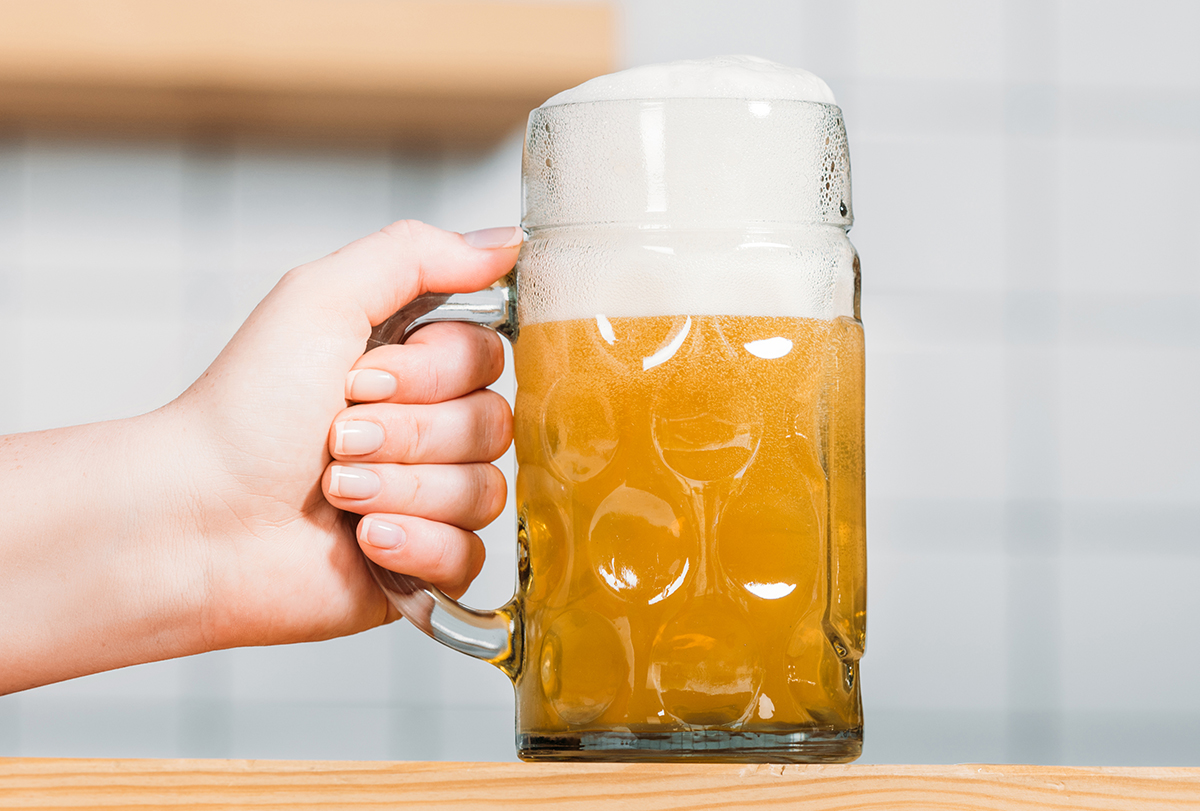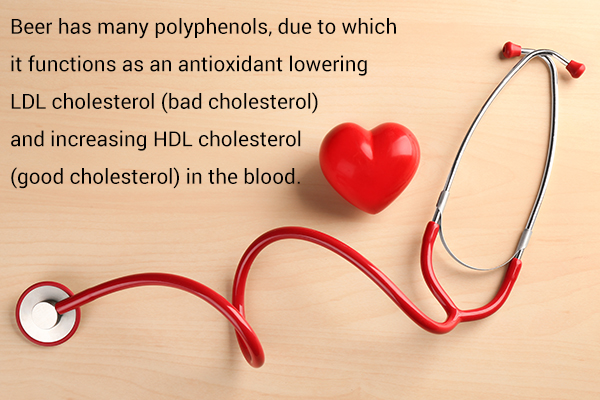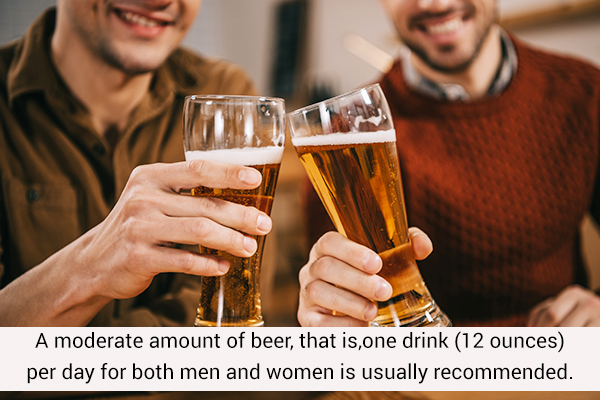In this article:
Beer is a beverage obtained by fermentation of malted barley by yeast and hops. It is one of the alcoholic drinks that have been consumed for ages by people all over the world.

While many people consider drinking wine healthy, most people are unaware that beer consumption in moderation is also healthy. This article seeks to explore the health benefits of beer consumption.
Beer may be classified as light beer and standard or regular beer based on the alcohol content and the number of calories it packs. Light beer, as the name suggests, gives fewer calories and lesser alcohol content, whereas standard or regular beer gives more calories and has more alcohol.
Both types of beer contain vitamins, minerals, and amino acids produced by yeast during the process of fermentation. (1)
Health Benefits of Beer Consumption
Beer consumption in moderation is associated with the following health benefits:
1. Improves nutrition
In addition to the vitamins and amino acids produced during fermentation, some essential nutrients are present in the cereals and hops used for fermentation.
Notably, the water-soluble B complex vitamins such as niacin, riboflavin, folic acid, vitamin B6, vitamin B12, and pantothenic acid are present in appreciable quantity in beer, adding to its nutritive value.
Thus, regular consumption of beer can prevent vitamin deficiency disorders, such as scurvy and beriberi. (1)
2. Preserves heart health

Coronary heart disease (CHD) is one of the major causes of death in the world today. Research evidence indicates that regular consumption of moderate amounts of beer significantly improves heart health and lowers the risk of heart disease. (2) Moderate consumption of beer lowers the triglyceride and cholesterol levels in the blood.
Beer has many polyphenols, due to which it functions as an antioxidant lowering LDL cholesterol (bad cholesterol) and increasing HDL cholesterol (good cholesterol) in the blood. (3)
Above all, the alcohol in beer serves as a stress buster and blood thinner, thereby reducing the risk of heart disease. Also, beer can provide better protection to the heart than wine and liquor, because it does not cause an increase in levels of homocysteine, (4) which is a chemical associated with a higher risk of heart disease. (5)
3. Reduces risk of osteoporosis
Beer contains silicon and humulone (the acid in beer isolated from hops), both of which function to decrease osteoporosis. (1) Beer also contains flavonoids that promote the building of stronger bones.
4. Supports the immune system
Studies carried out on rats have shown that beer has a positive influence on the functioning of the immune system. (6)
5. Exerts antidiabetic effects
Type 2 diabetes is the most common form of diabetes and is due to insulin resistance in the body. Humulones, a type of molecule present in beer, has been reported to reduce the risk of type 2 diabetes. (2)
Men showed a higher risk of prediabetes with high beer consumption. Generally, high alcohol consumption increases the risk of abnormal glucose regulation in men. In women, the associations are more complex: decreased risk with low or medium intake and increased risk with high alcohol intake. (7)
6. Reduces risks of dementia

Dementia and its subsequent progression to Alzheimer’s disease is one of the major neurodegenerative diseases affecting many elderly people all over the world. Many reports suggest a link between mental imbalances in the brain and Alzheimer’s disease.
Notably, aluminum has been implicated in triggering dementia. Recent research has shown that beer interferes with aluminum absorption, and thus regular beer consumption in moderate amounts reduces the risk of Alzheimer’s disease. (8)
7. Improves kidney function
Though some reports suggest a detrimental effect of beer consumption on kidney function, recent research shows that consumption of beer in moderate amounts may be beneficial. This is because the polyphenols and antioxidants in beer reduce kidney damage and improve overall kidney function. (9)
8. Exhibits anticancer properties
Xanthohumol, a flavonoid present in hops has anticancer properties. It has been shown to inhibit colon cancer, breast cancer, and many other cancers. (1)(10)
Ethanol is the type of alcohol found in alcoholic drinks, whether they are beers, wines, liquors (distilled spirits), or other drinks. Alcoholic drinks contain different percentages of ethanol, but in general, a standard-size drink of any type contains about the same amount of ethanol (about half an ounce).
Overall, the amount of alcohol someone drinks over time, not the type of alcoholic beverage, seems to be the most important factor in raising cancer risk. Most evidence suggests that it is the ethanol that increases the risk, not other components in the drink. (10)
9. Other health benefits
Beer exhibits antibacterial activity against most gram-positive bacteria due to the presence of iso-humulones from hops. Another compound, β-pseudouridine, separated from beer has been shown to protect cells from radiation-induced damage.
Beer has also been shown to protect the teeth from dental caries and hence has been used for applications such as mouthwash. (1)
Most-Asked Questions About Beer
How much beer is recommended?

A moderate amount of beer is recommended. This means one drink per day for both men and women. One drink of beer means 12 ounces.
What happens when more than the recommended amount of beer is drunk?
Drinking more than the recommended amount of beer could have negative effects on health, such as causing liver failure, cardiovascular disease, or mental health issues.
Final Word
Beer is enjoyed by many people worldwide. However, excessive consumption could lead to many disorders associated with alcoholism such as fatty liver and neurological complications.
When consumed in moderation, it could prove to be beneficial and provides several health benefits. Hence, moderation is the key to good health and enjoyment.
- Was this article helpful?
- YES, THANKS!NOT REALLY


